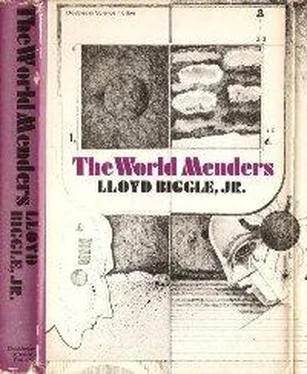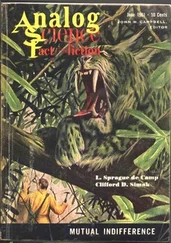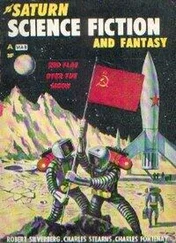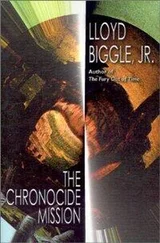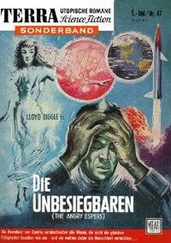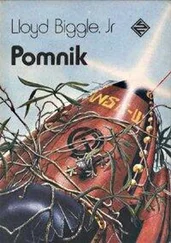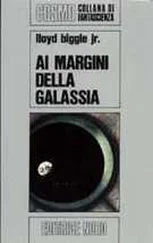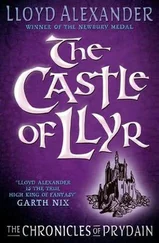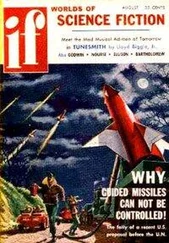Lloyd Biggle Jr. - The World Menders
Здесь есть возможность читать онлайн «Lloyd Biggle Jr. - The World Menders» весь текст электронной книги совершенно бесплатно (целиком полную версию без сокращений). В некоторых случаях можно слушать аудио, скачать через торрент в формате fb2 и присутствует краткое содержание. Год выпуска: 1971, Издательство: Doubleday, Жанр: Фантастика и фэнтези, на английском языке. Описание произведения, (предисловие) а так же отзывы посетителей доступны на портале библиотеки ЛибКат.
- Название:The World Menders
- Автор:
- Издательство:Doubleday
- Жанр:
- Год:1971
- ISBN:нет данных
- Рейтинг книги:5 / 5. Голосов: 1
-
Избранное:Добавить в избранное
- Отзывы:
-
Ваша оценка:
- 100
- 1
- 2
- 3
- 4
- 5
The World Menders: краткое содержание, описание и аннотация
Предлагаем к чтению аннотацию, описание, краткое содержание или предисловие (зависит от того, что написал сам автор книги «The World Menders»). Если вы не нашли необходимую информацию о книге — напишите в комментариях, мы постараемся отыскать её.
The World Menders — читать онлайн бесплатно полную книгу (весь текст) целиком
Ниже представлен текст книги, разбитый по страницам. Система сохранения места последней прочитанной страницы, позволяет с удобством читать онлайн бесплатно книгу «The World Menders», без необходимости каждый раз заново искать на чём Вы остановились. Поставьте закладку, и сможете в любой момент перейти на страницу, на которой закончили чтение.
Интервал:
Закладка:
“Since we don’t know which is cause and which is effect, why not—THE DEMOCRATIZATION OF CULTURE BRINGS ABOUT A CORRESPONDING DEMOCRATIZATION OF SOCIETY.”
Strunk stopped laughing. “ That smacks of heresy. Let’s see if there’s anything in the manual.”
He brought out his personal copy and began investigating likely references. Farrari went for his manual, and Liano scurried away to find hers, and the three of them sat around a table fretfully flipping pages and blearily skimming the fine print. Semar Kantz, the military expert, happened by, and, when the problem was explained to him he ventured the opinion that an equally sound theory could be based upon the democratization of military training. The three men were arguing noisily, with Liano listening in timid fascination, when Coordinator Paul strode into the room.
“I’ve had four complaints about the noise,” he announced. “What is going on here?”
“Farrari has this new theory,” Strunk said meekly. “We were checking to see if there’s anything in the manual, and then Kantz tossed his theory at us, and I suppose—”
“If you suppose theories that controversial should be discussed in a conference room, you’re right.” Paul pulled up a chair. “What is this new theory?”
Strunk explained, and the coordinator observed, “Cause and effect are tricky concepts. Your pair look to be trickier than most, but don’t let that discourage you. If you want to do a preliminary study, I’ll approve it. I’ll even recommend it.”
“That’s just what I want to do,” Farrari said. “How do I go about becoming an agent?”
The coordinator winced. “ Agent? You’d have to undergo a strenuous program of training and indoctrination and testing before you could be considered, and you’d have to be tested thoroughly to find out whether you’re even qualified to enter the program. For both of these steps you’d need your coordinator’s approval, which you wouldn’t get, and if through some oversight you got past those steps, you’d need Peter Jorrul’s permission before you could enter the field, and that’s even harder to come by. No, Farrari, I won’t even discuss this with you. IPR personnel who come to us as potential agents have already taken those two steps, which eliminate nine candidates out of ten, and even so fewer than half of them qualify as agents. Your chances would be perhaps one in a hundred, and that wouldn’t justify the trouble of training you. Besides, you’re much too valuable to us in your own field. I’d be a fool to trade a good staff member for an agent of unknown quality.”
“I see.”
“Apart from that, making you an agent just to enable you to carry out this particular study would be a senseless risk and a stupid waste of time, because there’s nothing you could accomplish as an agent that you couldn’t accomplish better here at base. You can have every scrap of information you’ll need that trained and experienced agents can possibly ferret out for you. Any plan you have that’s at all reasonable will be put into effect by the same agents. What sort of thing did you have in mind?”
“Art is expression,” Farrari said slowly. “Art is communication. Art is—but what do the olz have to express or communicate? I’d like to find out. At present the only link between the olz and their masters seems to be the zrilm whip, which is a rather one-way form of communication.”
“That may be truer than you realize. Did you know that there is no similarity whatsoever between their languages? That is, if you can call what remains of the ol speech a language, it seems to be atrophying out of existence. We think the olz were the original inhabitants of these valleys, and that the first strong nomadic tribe to find its way through the mountain passes enslaved them. Except for the farm and forest overseers and the mine supervisors, who are a special bilingual class, no one communicates with an ol or has any reason to. If any ol has ever learned as much as one word of Rasczian, it’s never come to our attention. This is a problem that could be close to the basis of all our problems, and we haven’t begun to cope with it because we have no idea of how to begin. Would culture provide any kind of a solution?”
Farrari shook his head. “I can’t see the rascz developing any interest in ol culture, and the culture of the rascz must be unthinkably remote to the olz. No, what I was wondering about was the extent to which the olz communicate with each other. Even the most primitive peoples develop diverse forms of art, and not infrequently the art is not only good, but surprisingly unprimitive. If the olz were once the masters of this land, they should have achieved some kind of minimal culture. What happened to it?”
“It must have atrophied along with their language. They have nothing very complicated to say to each other, and always the same people to say it to, and I suppose it’d be surprising if their means of communication, art or language, didn’t deterioriate. Linguistically they have now reached a point where they can get along with a few grunts and gestures. These are extremely expressive and complicated grunts and gestures, mind you. They aren’t the beginning of a language, but the end of one. The nuances are subtle and frightfully difficult to master. All of our agents have trouble learning ol.”
“How long would it take for an idea to spread from one end of the country to another?”
“Years,” the coordinator said bluntly. “There’s little contact even between neighboring communities unless the inhabitants happen to work the same fields.”
Farrari said thoughtfully, “Just for a beginning, this is what I’d like to know: Would the olz communicate if they had the means, the culture, or would they already have found the means if they had anything to communicate? I could best find that out by going among them and conducting experiments. For example, a very simple drawing—”
The coordinator was shaking his head emphatically. “We have twenty agents among the olz, risking their lives every moment of every day just by being olz. You can learn more from their reports in a week of study than you could with years of field work. A new agent among the olz, Farrari, has less than a fifty percent chance of survival.”
“All right,” Farrari said resignedly. “I’ll study the reports.”
The coordinator nodded and got to his feet.
“I could go with him,” Liano said timidly.
The coordinator whirled to face her, tense with incredulity, and for an instant he lost his poise—but only for an instant. He asked quietly, “You mean—the same role you had before?”
She nodded. “There wouldn’t be much for him to learn.”
“No,” the coordinator mused. “There wouldn’t be. You’d take charge of his indoctrination?”
Liano nodded excitedly.
“All right. Pick an unused room and draw what you need from supply.”
She hurried away, and it was Farrari’s turn to gape incredulously.
“What do you know about her?” the coordinator asked.
“I know her husband was killed.”
“That was only part of it. She was brutally mistreated. An ol lives in terror, Farrari, and too often that terror is justified. I hope you’ll never have to find that out from personal experience. I could order you to undergo this training, but I’d rather you did it as a favor to me. I’ll warn you—it may not be a pleasant experience. Liano hasn’t been fully rational since the tragedy happened, and she’s given to very strange moods and periods of partial, or even complete, catatonia. This is the first spark of interest she’s shown in anyone or anything. She’s a very special person, Farrari. I wonder if you have any idea how special.”
Читать дальшеИнтервал:
Закладка:
Похожие книги на «The World Menders»
Представляем Вашему вниманию похожие книги на «The World Menders» списком для выбора. Мы отобрали схожую по названию и смыслу литературу в надежде предоставить читателям больше вариантов отыскать новые, интересные, ещё непрочитанные произведения.
Обсуждение, отзывы о книге «The World Menders» и просто собственные мнения читателей. Оставьте ваши комментарии, напишите, что Вы думаете о произведении, его смысле или главных героях. Укажите что конкретно понравилось, а что нет, и почему Вы так считаете.
